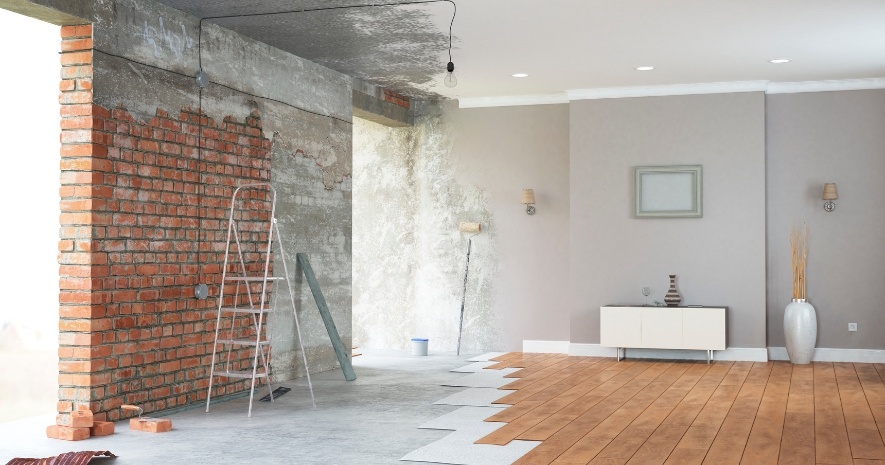Written by Randall Weaver, CPA & Anthony Calamia, CMA
Real estate investors want to maximize their tax advantages while maintaining profitable investments. One area with plenty of opportunities is Qualified Improvement Property (QIP). In this blog post, we will explore a case study demonstrating how proper planning around QIP can benefit real estate investors, particularly those managing mixed-use properties.
Case Study: Extended Stay Motel with Short-Term Rentals
A real estate investor purchased an extended-stay motel, intending to renovate it to attract a broader range of tenants. Most of the rooms were rented on a long-term basis, but the investor also used platforms like Airbnb to generate revenue from short-term rentals. The tax planning revolved around the building’s classification—whether it would qualify as residential or commercial property.
Why the Classification Matters
The classification of a property as either residential or commercial has significant implications for depreciation timelines.
- Residential property improvements generally have a depreciation period of 27.5 years.
- Commercial property improvements that meet the definition of QIP qualify for a faster depreciation period of 15 years and can also be eligible for bonus depreciation (60% in 2024, 40% in 2025, and 20% in 2026).
Key Requirement for Commercial Property Classification
For tax purposes, the building could be classified as commercial property if more than 20% of its revenue was derived from short-term rentals (e.g., stays of less than 7 days). This threshold is critical because meeting it allows any improvements made to the building to qualify as QIP. This allows any improvements to be eligible for bonus depreciation and depreciated over 15 years instead of just 27.5 years with no bonus depreciation.
Strategy and Outcome
-
Revenue Analysis: The revenue streams from the extended-stay motel were analyzed, and it was determined that approximately 25% of revenue came from short-term rentals, exceeding the 20% threshold for commercial classification. This meant the building could be treated as a commercial property for tax purposes.
-
Renovation and QIP Application: The investor’s renovations of $500,000 were made AFTER the building was placed into service, which is a requirement of QIP. These improvements included updates to lighting, HVAC, land improvements, plumbing, electrical, personal property, fire protection, flooring, and common areas. The real estate investor engaged with a cost segregation firm to perform the analysis. The results of the study will break down the renovation into four classes.
-
5 year – Personal Property
-
15 year – Land Improvement
-
15 year – QIP
-
39 year – Real Property
QIP is defined as improvements made to the interior of a non-residential building after its original placement in service. These improvements cannot be structural (e.g., they did not include the enlargement of the building, elevators or escalators, internal structural framework of the building, or exterior windows or roofing). If the property was considered residential, a cost segregation study could be performed, and some of the renovations would be classified as 5 year personal property and 15 year land improvement. -
-
Tax Savings: By reclassifying the building as commercial property and leveraging QIP regulations, the investor is able to claim 80% bonus depreciation in 2023 on 82% of the renovations in the tax year they were placed in service. This will result in significant immediate tax savings and improved cash flow—funds that can be reinvested into other projects. See Table 1 below to show the difference in depreciation and ultimate tax savings.

Improvements qualifying for QIP increased the tax savings by $39,360 because the investor was able to classify the property as commercial versus residential.
Lessons for Real Estate Investors
-
Understand Revenue Streams: Mixed-use properties can offer unique tax planning opportunities. You should ensure you understand your revenue breakdown and how it affects property classification.
-
Leverage QIP: QIP planning can accelerate depreciation and reduce taxable income, particularly for investors in commercial properties.
-
Collaborate with Experts: Proper tax planning requires a nuanced understanding of tax laws and a detailed analysis of financial data. Partnering with a trusted CPA firm can ensure you’re maximizing your tax benefits.
How Trout CPA Can Help
At Trout CPA, we specialize in helping real estate investors navigate complex tax regulations to optimize their investments. Our team has extensive experience with QIP planning, property classifications, and other strategies tailored to the real estate industry. Whether you own multifamily housing, commercial properties, or mixed-use buildings, we can help you unlock the full potential of your investments.
If you’re interested in exploring how QIP and other tax strategies can benefit your real estate portfolio, contact Trout CPA today. Let us help you achieve your financial goals with expert guidance and innovative planning.
About the Authors
Randall Weaver, CPA
Randall joined Trout CPA in 2011. He graduated from Millersville University with a Bachelor of Science degree in Business Administration (magna cum laude) in 2006. Randall has over 19 years of accounting experience. He currently serves on the firm's Construction and Real Estate, Manufacturing, and Estate & Trust Practice Groups. As a Partner, Randall manages all aspects of tax planning and preparation and business consulting for some of the firm's significant clients. Randall enjoys activities with his family, being involved with his church, and rooting for Philadelphia sports teams. He lives in Lancaster County with his wife and two children.
Anthony Calamia, CMA
Anthony joined Trout CPA in August 2022 after two summer internships. He graduated magna cum laude from Millersville University with a Bachelor of Science degree in Accounting and Finance in the Fall of 2021 while playing soccer all four years. As an Associate, Anthony assists with audit and attest services, including financial statement preparation. He also assists with corporate and individual tax preparation. In his free time, Anthony enjoys watching sports, going to the gym, playing video games, and spending time with his family and friends.





